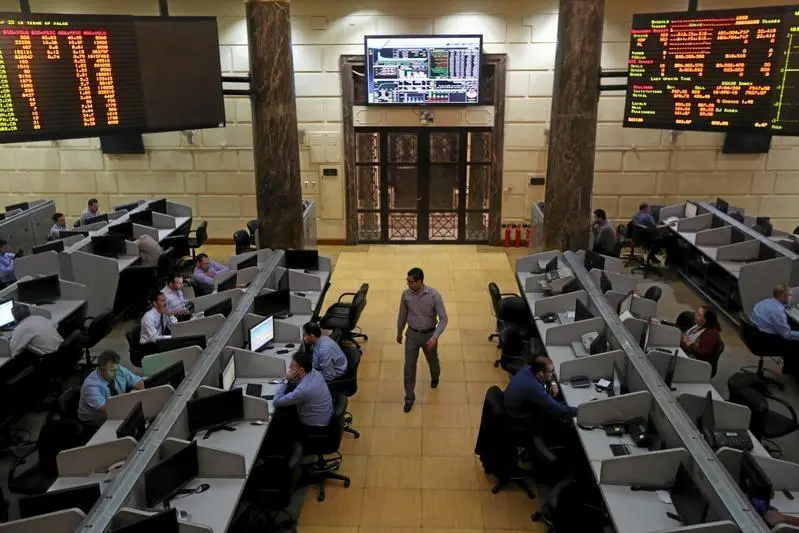PHOTO
Saturday, Oct 22, 2016
Cairo: Until a few years ago, Reda Mahmoud, an employee at a Cairo private bank, used to take his wife and their two children out for dinner. But now, even with the added salary of his wife, a civil servant, he cannot afford to.
“My wife and I earn around 4,500 [Egyptian] pounds (Dh1,867) every month. But even with this money, which is a lot compared to what most Egyptians make, we can hardly cope with the soaring costs of living,” Mahmoud, 49, said.
“Prices of everything have gone crazy: food, private lessons and taxes. I’ve already asked some friends to find me a second job in order to earn extra money.”
Mahmoud, who is living in a flat he owns in the northern Cairo area of Shubra, is one of millions of Egypt’s middle class members who are increasingly feeling the pinch of economic pressure in the Arab world’s most populous country.
Egypt’s economy has been in the doldrums due to the unrest, which followed the 2011 uprising that forced long-time president Hosni Mubarak out of power.
In recent months, prices of different commodities have increased in the import-reliant country amid a sharp drop in foreign currency revenues.
“This is the worst time for the middle class,” said Khalid, a 65-year-old pensioner.
“In the past, I would give some money to my married sons. I can longer do this because I can hardly live and support my wife with my pension of 2,900 pounds with this soaring inflation,” added Khalid, an ex-manager at the Education Ministry.
He refused to be named in full for fear of social disgrace.
“Have mercy on people who once lived a good life, but now are facing humiliating times,” the man said, citing a local proverb.
Inflation in Egypt was officially put at 14.6 per cent in September, compared to 9.4 per cent the same month last year.
The rate is expected to further rise due to a widely anticipated devaluation of the Egyptian pound as part of a package of economic reforms that the government says is necessary to revitalise the flagging economy.
Egypt is seeking a $12-billion bailout from the International Monetary Fund over three years to this end.
The loan was initially agreed in August. The IMF executive board has yet to approve it. The Egyptian government has repeatedly said that the world financing institution has set no condition for it to obtain the loan and that the reform steps are home-grown. They include cutting state subsidy on energy and introducing new taxes.
“Whether these painful measures are the fund’s prescription or not, there is a big possibility that the patient will not bear the overdose and will die,” Khalid, the pensioner, said angrily, referring to economic reforms. “The poor are getting poorer, and the middle class is following them. We are being crashed.”
The middle class makes up nearly 50 million of Egypt’s 91 million population, according to the state-run Central Agency for Public Mobilisation and Statistics
The class comprises Egypt’s bureaucrats, self-employed professionals, university professors, bankers and security officers, according to experts. The class had its glorious days under the rule of late Egyptian president Jamal Abdul Nasser who governed Egypt for 16 years until his death in 1970, they say.
“The 1952 revolution supported the middle class,” said Hossam Al Khuli, an economist, referring to the toppling of the monarchy by a group of young army officers including Nasser. “The revolution adopted several socialist policies in favour of this class that included redistribution of agricultural land, free education and health care, provision of low-cost houses and securing jobs for university graduates in the state apparatus,” he added.
Al Khuli blames Anwar Al Sadat, who followed Nasser in power, for the reversal of fortunes for the middle class in Egypt.
“Since the early 1970s, the gains of the middle class have started to shrink because of the infitah (open door policy) initiated by Al Sadat,” he added. “Mubarak followed in the footsteps of Al Sadat in this regard.”
Al Khuli believes that the middle class will further suffer as Egypt’s economic crisis bites.
“In its pursuit of economic reforms, the government should be more careful about the repercussions of these reforms on the middle class, which is the safety valve for any society,” he said. “This class takes society forward because its members are usually well-educated and conscientious.”
Agreeing, Mohammad Sayyed Ahmed, a political researcher, warns against a backlash from the embattled middle class.
“When the noose is tightened around this class, it does not die. It leads a revolutionary action, which the lower class joins. A reminding proof is the January 25,” Ahmad said, referring to the anti-Mubarak uprising in 2011.
By Ramadan Al Sherbini Correspondent
Gulf News 2016. All rights reserved.





















